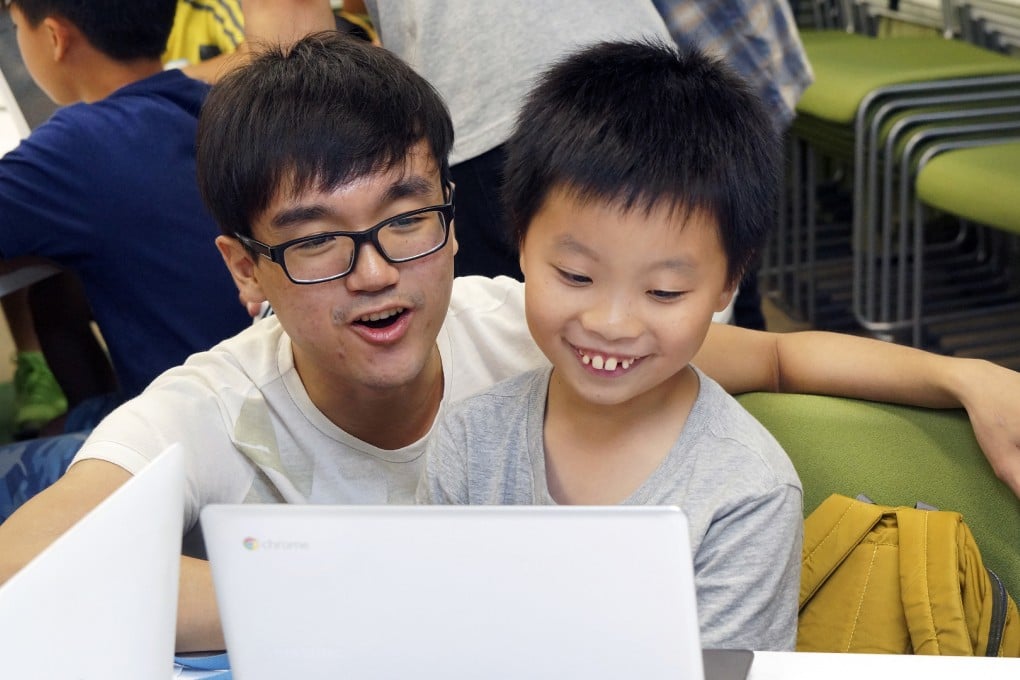Group that's helping Hong Kong kids to give back to their communities
Google-backed Kidsunity programme (that's kids+community) aims to inspire social awareness in the city's children and empower them to contribute to the places they live in through ingenuity

"What is community?" a nine-year-old boy asked to the raucous laughter of his peers during the launch event of "Kidsunity", a pilot community engagement programme for underprivileged children in Hong Kong.
Despite its seeming innocence, the question was more than apt, since the programme - with a name that merges "kids" and "community" - explicitly aims to instil social awareness in children and empower them to contribute to their communities with their resourcefulness.
Aimed at schoolchildren from Primary Four to Form One, Kidsunity is sponsored by Google Hong Kong and co-organised by Hong Kong charities Principal Chan's Free Tutorial World and the Design for Child Association. For six months from August, the programme's teachers will lead small groups of participants in community projects at various locations throughout Hong Kong, with the aim of giving them confidence to tackle the social problems they observe with creativity and engagement.
Because they are children from low-income families - a doubly vulnerable group in society - the 23-strong pilot group of Kidsunity participants will chart a new path of bottom-up community action through their endeavours, no matter what they achieve.
"We hope Kidsunity will be a platform for children to solve community problems with their own ideas and initiative, regardless of how small or inconsequential the scale," says Chan Hung, or Principal Chan, of his eponymous free tutorial centre. Supported by Google for Non-Profits, it now serves 6,000 tutees and runs a host of extracurricular activities. "The idea is that, as long as children use their imagination and do something with it, they can make a difference," he said.
Based on the Design for Change (DFC) model of child empowerment initiated by Indian school principal Kiran Bir Sethi in 2009, Kidsunity inspires children to change their communities through four simple steps: feeling, imagining, doing and sharing. Translated into real actions, these abstract steps require children to learn about their communities through research and observation, identify problems that need to be improved, devise concrete ways to solve these problems, and, finally, share their achievements with others to influence them to action.